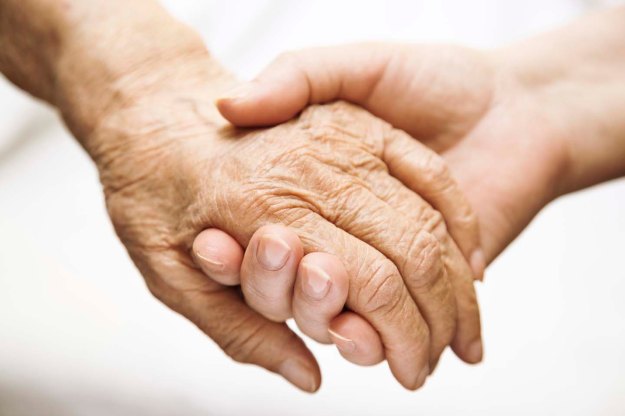By Liz Lloyd
University of Bristol
Simone de Beauvoir once said:
‘Nothing should be more expected than old age: nothing is more unforeseen’.
This encapsulates perfectly the unforeseen nature of ill health and decline prior to death, which for the vast majority of us occurs in old age. Researchers often find that older people are reluctant to engage with the topic of death or at least, it requires a particularly engaging researcher and carefully crafted research tools to generate in-depth responses.
Widowhood has usually been researched from the perspective of a bereaved person after a death has occurred. Examples include accounts of the time around the death, examinations of widows’ resilience and coping strategies as well as their level of satisfaction with the circumstances in which their partner died (see for example the work of Kate-Mary Bennett and Laura Soulsby at Liverpool University). Recently I have been researching literature on the giving and receiving of care between older people and linking this to the question of impending widowhood (understood in its broadest sense as the loss of a partner or other person equally close). This has inevitably raised a question about anticipation of widowhood, either because the individual who is cared for is on a trajectory towards death or because the carer is anxious about who will provide care if they die first.
Examining how older people with health problems look to the future was one of the aims of a recent research project at the University of Bristol. The Maintaining Dignity in Later Life project was not particularly focused on couples, but as there were 18 married/cohabiting/civil-partnered participants out of a total group of 34 questions arose about the particular circumstances they experienced.
In one interview that I conducted with a couple in their eighties – we’ll call them George and Pat – the following exchange came up:
Liz: ‘So, looking to the future, have you thought about where you would go to get more help or support?’
George: ‘Well if something should happen to either of us, I suppose we should have to have a nurse or something’
Pat: ‘When the time comes, it’ll come and that’s all there is to it’
This wasn’t the first time that I have encountered the view that Pat expressed. ‘Living day to day’ is a common response and it’s not really surprising. Not spending your time thinking about the future can be a protection against the growing realisation of the shortness of time left. In this interview, the phrase that continued to circulate in my mind was George’s: ‘If something should happen to either of us’: If not when.
Widowhood might be understood as one among the many fears about the future and about death. Facing the future alone after years of a relationship is be painful to contemplate. My parents used to have a play argument: ‘I’m going first;’ ‘No I’m going first’. For them, the prospect of death was buffered by a strong belief in an eternity in heaven, yet neither wanted to face the prospect of widowhood in their remaining time on earth.
Caring responsibilities and the need for care can force an individual to think ahead and plan for the future. We know that long term illnesses, such as Alzheimer’s or Parkinson’s disease generate anticipatory grief and a diagnosis of incurable illness engenders a sense of urgency. In Bennett’s research, a participant, Mrs T, described such an event:
‘He knew and I knew and he was marvellous. He got everything done so that he kept saying, “I’ll leave you okay, we’ll have this done and that done”’.
On the other hand, the more general complex long-term conditions that many older people experience do not encourage looking ahead, especially when punctuated by episodes of illness from which individuals recover. This was evident in our study when Robert (aged 83) talked about their need to move to a care home together ‘soon’ so that his wife would be better able to adjust to change after he died. Sadly, they left it too late and he died in hospital within a year. Decisions such as Robert’s typically take a long time, sometimes generate tensions within couples and are even worse when the alternatives appear bleak. Philip (aged 88) said,
‘If my wife falls by the wayside I will have to seriously think about getting myself into a care home’. Philip remained unsure about this because ‘when that door closes you don’t know what happens’.
Far from engendering a sense of security, as Philip found the care system actually compounds the fear of the future because of what might happen. It has become part of the great unforeseen that we face in old age, which is capable of change and which should change.
